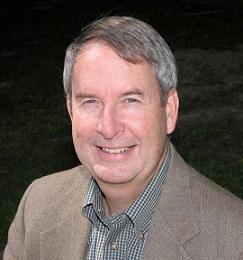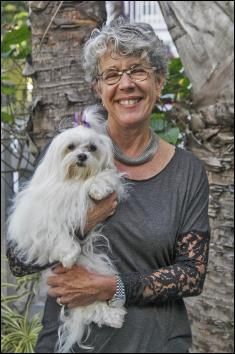Career & Tools
In this installment of the GradPost column, "The Doctor Is In," three members of the UC Santa Barbara faculty answer graduate students' questions about the academic publishing process, including how much one should publish as a grad student and how to deal with the rigors of peer review. We hear from Dr. Richard Church, Dr. John Majewski; and Dr. Leila Rupp.
Welcome to the February 2015 edition of The Doctor Is In, a recurring column on The GradPost where UCSB faculty answer graduate students' questions about life in academia. In this installment, three members of our faculty panel answer your questions about the academic publishing process, including how much you should publish as a grad student and how to deal with the rigors of peer review.
About Our Faculty Panel
 Dr. Richard Church is a Professor of Geography. He holds a Ph.D. in Environmental Systems Engineering from The Johns Hopkins University and has published over 180 papers and research reports in a variety of fields. He specializes in the analysis of problems defined over space and time, including logistics and transportation, location theory, water resource, urban and environmental systems.
Dr. Richard Church is a Professor of Geography. He holds a Ph.D. in Environmental Systems Engineering from The Johns Hopkins University and has published over 180 papers and research reports in a variety of fields. He specializes in the analysis of problems defined over space and time, including logistics and transportation, location theory, water resource, urban and environmental systems.
 Dr. John Majewski is the Interim Dean of Humanities and Fine Arts as well as a Professor of History. He holds a Ph.D. in American History from UCLA. His areas of specialization include American economic, social, and legal history, Southern history, and the U.S. Civil War. Dr. Majewski is the author of two books as well as numerous articles, reviews, and book chapters. He also regularly reviews manuscripts for various journals and university presses. He earned the UCSB Academic Senate Distinguished Teaching Award in 2003.
Dr. John Majewski is the Interim Dean of Humanities and Fine Arts as well as a Professor of History. He holds a Ph.D. in American History from UCLA. His areas of specialization include American economic, social, and legal history, Southern history, and the U.S. Civil War. Dr. Majewski is the author of two books as well as numerous articles, reviews, and book chapters. He also regularly reviews manuscripts for various journals and university presses. He earned the UCSB Academic Senate Distinguished Teaching Award in 2003.
 Dr. Leila Rupp is the Associate Dean of Social Sciences and Professor of Feminist Studies. She holds a Ph.D. in Modern European and Modern American History from Bryn Mawr College. She specializes in women's movements, sexualities, and transnational history. Dr. Rupp has authored or co-authored half a dozen books and published numerous articles, book chapters, and other essays. She served as editor for the Journal of Women's History and continues to serve on the editorial board for several journals. She earned the UCSB Academic Senate Distinguished Teaching Award in 2008 and is currently serving as the Graduate Advisor for the Department of Feminist Studies.
Dr. Leila Rupp is the Associate Dean of Social Sciences and Professor of Feminist Studies. She holds a Ph.D. in Modern European and Modern American History from Bryn Mawr College. She specializes in women's movements, sexualities, and transnational history. Dr. Rupp has authored or co-authored half a dozen books and published numerous articles, book chapters, and other essays. She served as editor for the Journal of Women's History and continues to serve on the editorial board for several journals. She earned the UCSB Academic Senate Distinguished Teaching Award in 2008 and is currently serving as the Graduate Advisor for the Department of Feminist Studies.
Q: What is the ideal publishing timeline for a graduate student?
Dr. Majewski: I am most familiar with the humanities and social sciences, and in those disciplines, the most likely time to begin publishing is after completion of the Ph.D. qualifying exams. Students who have taken their exams have mastered key works in their field, know the questions they want to pursue, and have begun to embark on dissertation research and writing. Publishing is especially helpful at the dissertation stage because you will get useful feedback and establish a sense of engagement with scholars in your field. It will become clearer to you what arguments other scholars find compelling, and what arguments need more work. Publishing at the dissertation stage also helps you establish a scholarly identity. You are essentially alerting others in your field about the questions you find compelling.
Dr. Rupp: The answer to this question varies tremendously depending on discipline: whether the discipline values books vs. articles, how much and what kind of research is necessary to publish, whether one publishes alone or with an advisor, and so on. I will start by saying the obvious: you have to have something worth publishing first, so do not feel pressured to publish until that is the case. Once something is in print under your name, it is there forever.
For the rest, I will answer based on my experience in the fields of history and feminist studies. A first publication can be based on an M.A. thesis, or it can be a first product of dissertation research. I have always encouraged my graduate students to publish their M.A. theses in some form. In my department, the M.A. thesis is designed to become an article: it is roughly 30 pages and is based on original research. It has none of the extended literature review or discussion of methodology found in an unrevised thesis or dissertation. I also encourage my students to think of some part of the dissertation that can be published as a article before completing the dissertation. This announces to the world (or, more realistically, scholars interested in your field) that you are working on this topic. So, an article early on (but not too early) and at least one on the dissertation topic pre-defense is, in my opinion, ideal.
Dr. Church: There is no one answer that fits all of the circumstances that come to mind in a publishing timeline. The answer to this will vary significantly across disciplines as well as what type of job a graduate student intends to seek after graduation.
For example, in the humanities, the notable accomplishment is the development of a dissertation and the possibility of transitioning this to a book. However, in the sciences, individuals often need to develop a sizable number of published papers as a graduate student or maybe while doing a post-doc if they are seeking a university post.
In fact, the dissertation in the sciences is often arranged in such a manner that it is comprised of chapters that are stand-alone papers that have been submitted for review. Universities look closely at the publication record when selecting possible candidates, while private corporations look more at courses, research results, etc. Since the real answer to this is discipline-specific and job-specific, I would recommend that a graduate student talk to their advisor, their department's graduate advisor, and their committee members as to a potential target number of publications and a timeline.
Q: How does one deal with the peer review process, including rejection and critical feedback?
Dr. Rupp: First of all, think of the review process as an incredible privilege: scholars outside your committee are reading your work, taking it seriously, and suggesting ways to improve it. No matter how long we've been publishing, we tend to have a cycle of reactions to critical peer reviews. At first reading, there's a certain amount of outrage and denial. So it's good to put the reviews aside after reading them, think about them, and come back to them in a few days.
Let your advisor and other committee members read the reviews and ask for their reactions. Then sit down and outline what you agree with and what you do not. Give yourself plenty of time to revise, assuming you have the opportunity to revise and resubmit. Take everything seriously, and write a very careful memo describing what you have done and what you have not done and why. This is critical and is almost as important as the revisions themselves.
If your article is rejected, do not give up. Some of the best articles have been rejected by more than one journal. Take the comments to heart, revise, and send somewhere else. I repeat, do not give up unless your advisor thinks it is hopeless. If you start early enough, you can begin with the best journal that is appropriate and move down from there. I just received an email from one of my students who received her Ph.D. in the spring. Her article based on her M.A. thesis was finally accepted after more than one rejection (and many revisions) over the last 5 or 6 years.
Dr. Church: Never take a critical review personally. Life is too short to harbor such feelings. Almost everyone has received a note indicating that their paper has been rejected or needs major revision.
Early in my career, I experienced a reviewer who wrote that my paper was a complete waste. Another reviewer gave me a half thumbs-up for the same paper, but wrote that I needed to make some revisions. The editor was more inclined to side with the first reviewer and to reject the paper. I modestly revised this manuscript and resubmitted it with a long explanation as to why it needed a second look. It was accepted, and not long after it was published someone wrote me and told me it was one of the best papers on the subject they had read.
The take-away here is that reviews are not always accurate, but often have good suggestions as to how the paper can be improved. They can also raise concerns that you hadn't addressed in the paper and a revision gives you the opportunity to correct this omission. This often results in a clear pathway to a published paper when such issues are addressed. If I had taken criticism personally, perhaps I wouldn't have revised and resubmitted. If you experience a negative review, I recommend that after reading it, you set it aside for a few days. Picking it up a few days later, you might look at the review from a more objective viewpoint, rather than taking it personally.
Dr. Majewski: Rejection goes hand and hand with publishing. The more prestigious and established a journal, the greater the chance of rejection. (Not getting rejected, in fact, may be a problem as it might be a sign that you are not taking enough risks.) Let's face it, rejection stings. After all the hard work and creative energy that goes into an original piece of scholarship, it is hard to see it criticized and rejected.
Don't lose confidence and don't get defensive. Remember that everybody has faced rejection at one time or another, so carefully listen to criticism, and use it to improve your work. Most reviewers will give you honest feedback, while a few reviewers will be biased, ideological, or other variants of unfair. Even if you believe a review is unfair, it is important not to take it personally, and try to find a nugget or two of good advice. And remember, there are always other journals, other outlets, and other reviewers.
Q: In order to get a good academic job, how much do I need to publish by the time I graduate?
Dr. Majewski: There is no one publishing formula for the job market. I have seen superb job candidates with multiple publications as graduate students, and I have also seen superb candidates with only a publication or two. In traditional book disciplines, a brilliantly conceived dissertation will likely count far more than articles, while in the sciences and social sciences, publishing early and often in journals is a marker of success. One strategy that often works is to have one really good "flagship" article placed in a strong journal. That article can demonstrate the importance of your research agenda and can be the basis of your job talks and elevator speeches for the job market. In general, it is better to publish fewer high-quality pieces than to have a profusion of lower-quality articles that don't quite have the same scholarly impact.
Dr. Rupp: It is not really a question of how much. How much is enough varies by discipline, but in every discipline a book is not just a book and an article is not just an article. The quality of your work and the quality of the venue makes an enormous amount of difference. Some publication is increasingly essential in every field. The goal I set for my students, as noted above, is at least one article, preferably in a well-ranked journal in the field, based on the dissertation research, and one other based on other work (MA thesis, seminar paper).
One thing to keep in mind in book disciplines is that publishers do not want you to have published too many articles based on the dissertation, since then they worry that no one will buy the book. So it is possible to publish too much as a graduate student. When looking at a book manuscript, editors will want to know how chapters differ from articles you have published. If you want and need to publish a book, keep this in mind. And don't forget, an article in the top journal in your field has the potential to get you farther than a long list of publications (such as encyclopedia entries, book reviews) that, at some universities, are considered more "service" than scholarship.
I encourage my students to think of the dissertation as a first draft of a book manuscript, and I have had students publish books with relatively minor revision. In disciplines and at universities that require a book for tenure, hiring committees will want to be able to see that a book is within reach before the tenure clock runs out.
Dr. Church: There is no fixed number in most professions. There are a number of factors that are often considered: quality of journals, the fit of the journals within your field, impact factors, numbers of papers, etc. For example, to many people, an article in Science, or Nature trumps several articles in other journals. Having half a dozen articles published and several underway is a good first start in many professions. It is best to discuss this with your advisor. One last note, things have changed considerably, where 30 years ago many people started an academic job with one or two papers; now, the needed number in most fields in getting an academic appointment is 4 to 5 times this amount or even more if a post doc is the norm. This trend is likely to continue.